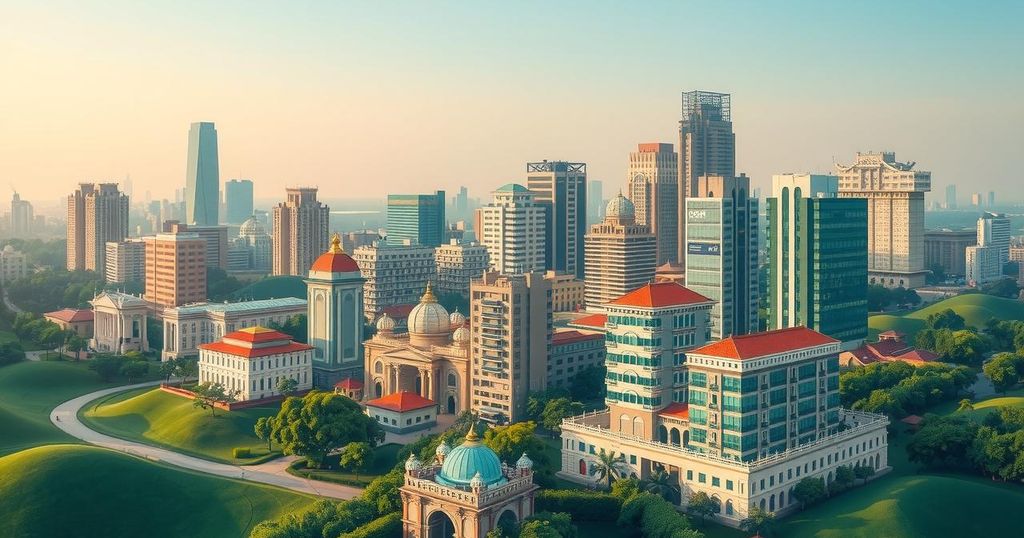Pakistan’s Foreign Minister Ishaq Dar will visit Bangladesh for the first time in over a decade, marking potential improvements in bilateral relations following political changes in Bangladesh. The visit coincides with Bangladesh’s lifting of restrictions on Pakistani exports, and a new visa policy alleviating requirements for Pakistani citizens. Diplomatic exchanges are increasing, yet tension remains concerning internal security and the political climate.
Ishaq Dar, the Foreign Minister of Pakistan, is scheduled to visit Bangladesh next month, marking the first visit to the country in over a decade, as reported by The Express Tribune. This visit signifies a pivotal moment in the evolving relationship between Dhaka and Islamabad, particularly following the recent political changes in Bangladesh after Prime Minister Sheikh Hasina’s departure last August.
This upcoming trip will be the first by a Pakistani foreign minister since Hina Rabbani Khar visited in 2012 to invite then-Prime Minister Sheikh Hasina Wajid to the D-8 summit. Mr. Dar confirmed the visit during a press conference in Islamabad, stating that he had received an invitation from his Bangladeshi counterpart. He also announced that Muhammad Yunus, the head of Bangladesh’s interim government, will visit Islamabad on dates mutually agreed upon.
The relationship between the two nations has long been strained, especially throughout Hasina’s 16-year administration, where she often aligned more closely with India, thereby neglecting opportunities to reconcile with Pakistan. Following Hasina’s political upheaval, the dynamics between Bangladesh and Pakistan appear to be shifting positively, marked by several high-level exchanges that have reportedly occurred recently.
Among the developments is Bangladesh’s decision to lift restrictions on Pakistani exports, which has contributed to a significant increase in bilateral trade. The two countries are also now directly trading via sea routes, further enhancing economic ties. During his press conference, Mr. Dar referred to Bangladesh as a “brother country,” affirming Pakistan’s commitment to supporting Dhaka in various capacities.
Additionally, a recent policy change has facilitated the process for Pakistani citizens to obtain Bangladeshi visas by eliminating the previous security clearance requirement. This decision could have broader security implications, particularly concerning the geopolitical dynamics in India’s northeast region amid ongoing tensions regarding extremist groups.
The bilateral relationship continues to evolve against a backdrop of regional tensions, especially after the political fallout resulting in Hasina’s exile in India following significant protests against her government. The transitional government under Yunus has faced its own challenges, including rising violence against religious minorities and demands for the former prime minister’s return to Bangladesh.
This evolving landscape necessitates close observation as both Pakistan and Bangladesh navigate their diplomatic and trade relations under new political conditions in the region.
The impending visit of Pakistan’s Foreign Minister Ishaq Dar to Bangladesh signifies a notable shift in diplomatic ties, amidst a backdrop of political upheaval in Bangladesh. The lifting of trade restrictions and a changed visa policy highlight increasing collaboration. However, challenges persist amid concerns over security and regional political dynamics, particularly influenced by the actions of the interim government and the ongoing situation regarding former Prime Minister Hasina. As both nations seek to improve relations, the changes observed warrant careful monitoring.
Original Source: www.business-standard.com






